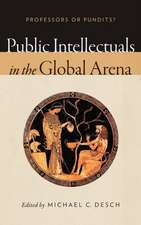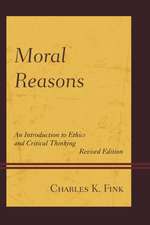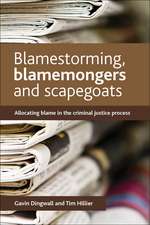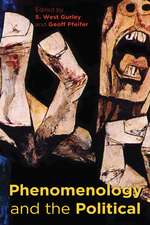Taxation: Philosophical Perspectives: Engaging Philosophy
Editat de Martin O'Neill, Shepley Orren Limba Engleză Hardback – 7 aug 2018
Preț: 451.24 lei
Preț vechi: 494.76 lei
-9% Nou
Puncte Express: 677
Preț estimativ în valută:
86.35€ • 92.33$ • 71.99£
86.35€ • 92.33$ • 71.99£
Carte tipărită la comandă
Livrare economică 07-14 aprilie
Preluare comenzi: 021 569.72.76
Specificații
ISBN-13: 9780199609222
ISBN-10: 0199609225
Pagini: 280
Dimensiuni: 163 x 241 x 23 mm
Greutate: 0.59 kg
Editura: OUP OXFORD
Colecția OUP Oxford
Seria Engaging Philosophy
Locul publicării:Oxford, United Kingdom
ISBN-10: 0199609225
Pagini: 280
Dimensiuni: 163 x 241 x 23 mm
Greutate: 0.59 kg
Editura: OUP OXFORD
Colecția OUP Oxford
Seria Engaging Philosophy
Locul publicării:Oxford, United Kingdom
Recenzii
When I designed my course on Iarkets and Morals, at Yale in 2017, I wanted a reflection on the normative value of market outputs to figure prominently. This, of course, would require a range of philosophical acounts of taxation. To my suprise...little was written on the topic...Taxation: Philosophical Perspectives quenched my thirst. With this remarkable cllection f 12 essays and a concise introduction, we now have a philosophical literature on the topic.
Theories of distributive justice have enormous implications for tax systems. Yet the topic of taxation itself has rarely been given systematic attention by philosophers. This timely and important volume is the first edited collection on philosophical approaches to taxation and sets a very high standard. It contains contributions from leading interdisciplinary political philosophers, who provide a range of rigorously argued perspectives both on general questions of the justification of taxation, and on the desirability of specific taxes. Showing that it is far from an abstract or merely technical issue, this essential volume makes a powerful case that taxation is a central concern for distributive justice.
Taxes are more than arithmetic; they inevitably raise questions of values. Yet, with few exceptions, philosophers have left taxes to economists and politicians. This excellent volume brings together a range of values, viewpoints and considerations that bear on taxes in general and in specific cases. It should be widely read by philosophers as well as by anyone interested in understanding what's at stake in our debates about taxes.
Myths, slogans, ideology - few topics are less understood than tax, and yet few areas of policy are more important for realizing justice. In this book experts from several disciplines interrogate taxation, from its philosophical foundations to how we should change our laws today. Rich in ideas, this collection will be essential for everyone who wants to understand what taxation really is and how it can be done right.
With this remarkable collection of 12 essays and a concise introduction, we now have a philosophical literature on the topic. Naturally, there are still some unanswered questions, but the progress is notable... It is very well organized, and the essays complete each other, even when opposing views are put forward. This book could serve as essential reading in undergraduate and master's level courses in political philosophy, philosophy of economics and PPE.
Theories of distributive justice have enormous implications for tax systems. Yet the topic of taxation itself has rarely been given systematic attention by philosophers. This timely and important volume is the first edited collection on philosophical approaches to taxation and sets a very high standard. It contains contributions from leading interdisciplinary political philosophers, who provide a range of rigorously argued perspectives both on general questions of the justification of taxation, and on the desirability of specific taxes. Showing that it is far from an abstract or merely technical issue, this essential volume makes a powerful case that taxation is a central concern for distributive justice.
Taxes are more than arithmetic; they inevitably raise questions of values. Yet, with few exceptions, philosophers have left taxes to economists and politicians. This excellent volume brings together a range of values, viewpoints and considerations that bear on taxes in general and in specific cases. It should be widely read by philosophers as well as by anyone interested in understanding what's at stake in our debates about taxes.
Myths, slogans, ideology - few topics are less understood than tax, and yet few areas of policy are more important for realizing justice. In this book experts from several disciplines interrogate taxation, from its philosophical foundations to how we should change our laws today. Rich in ideas, this collection will be essential for everyone who wants to understand what taxation really is and how it can be done right.
With this remarkable collection of 12 essays and a concise introduction, we now have a philosophical literature on the topic. Naturally, there are still some unanswered questions, but the progress is notable... It is very well organized, and the essays complete each other, even when opposing views are put forward. This book could serve as essential reading in undergraduate and master's level courses in political philosophy, philosophy of economics and PPE.
Notă biografică
Martin O'Neill is Senior Lecturer in Political Philosophy at the University of York. He is co-editor (with Thad Williamson) of Property-Owning Democracy: Rawls and Beyond (Wiley-Blackwell, 2012).Shepley Orr is Lecturer in the Department of Civil, Environmental & Geomatic Engineering in the UCL Faculty of Engineering Sciences, and an affiliate member of the UCL Centre for Philosophy, Justice and Health.































